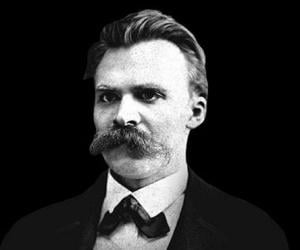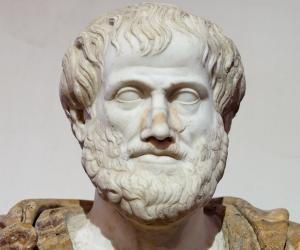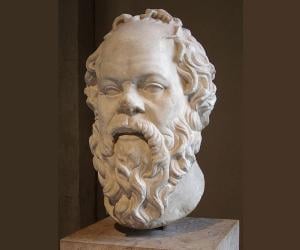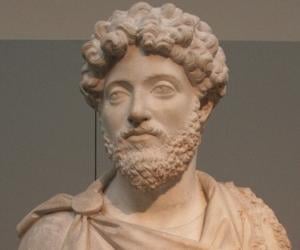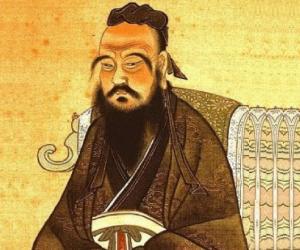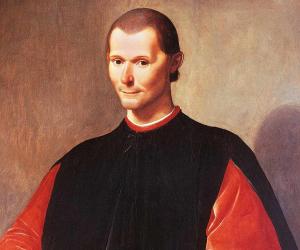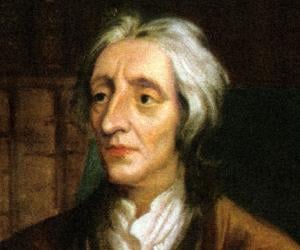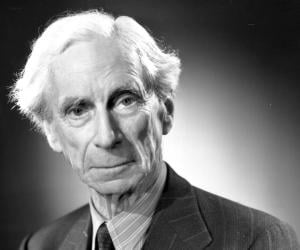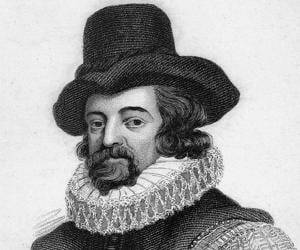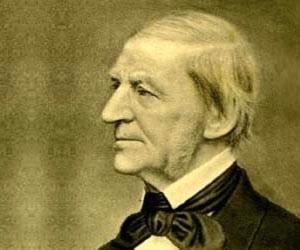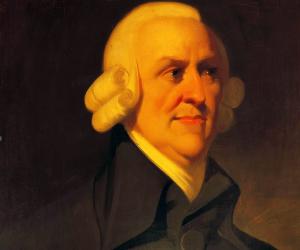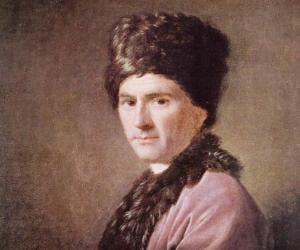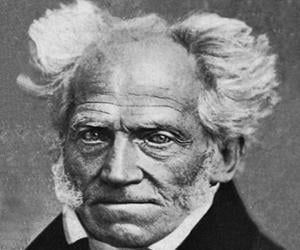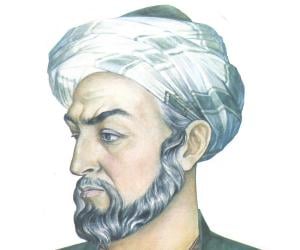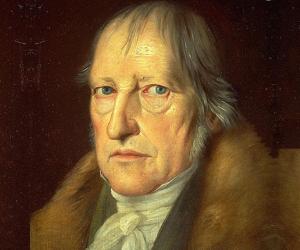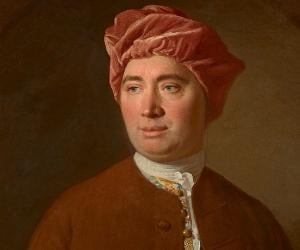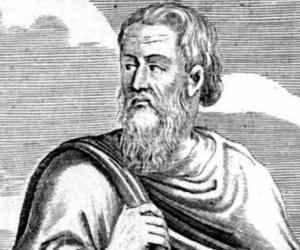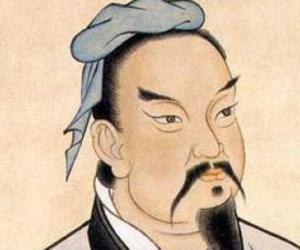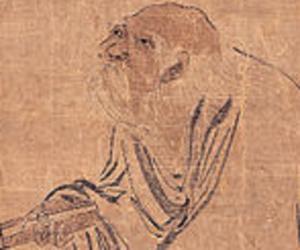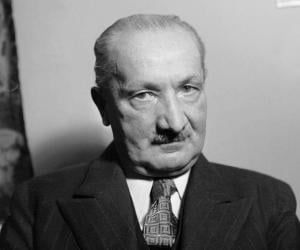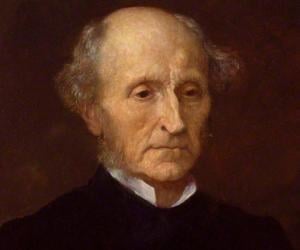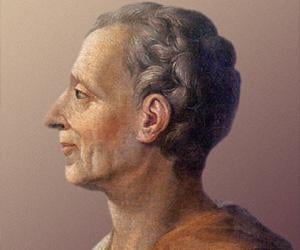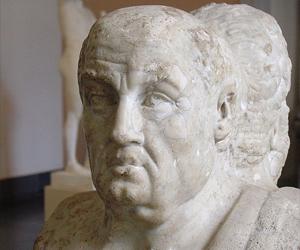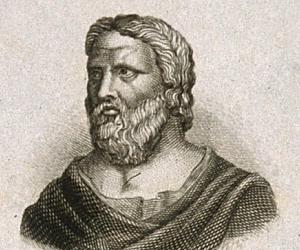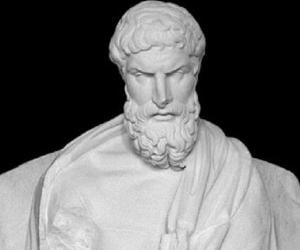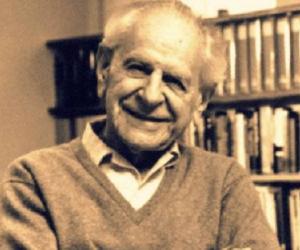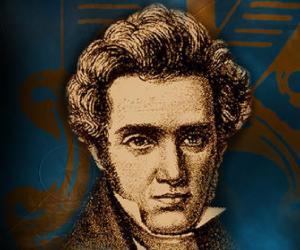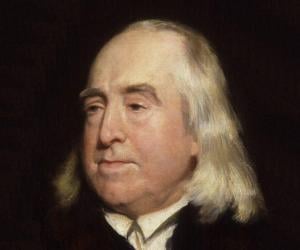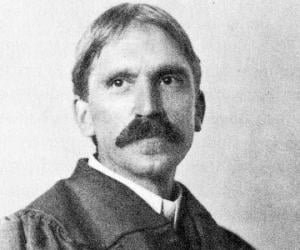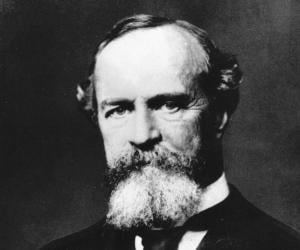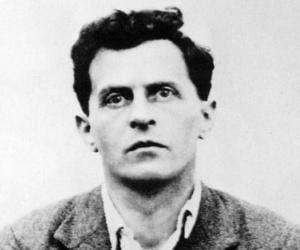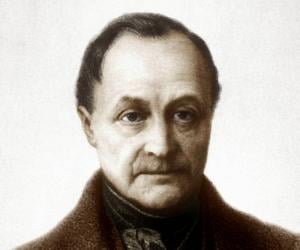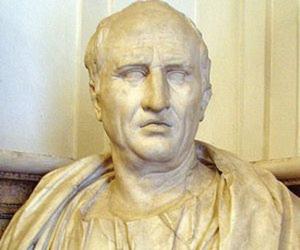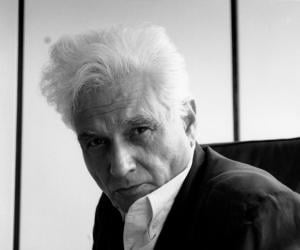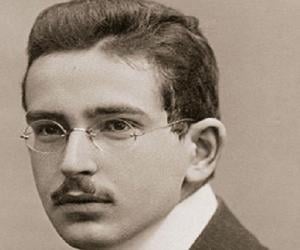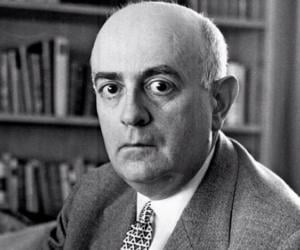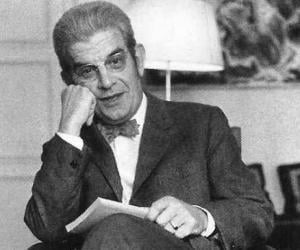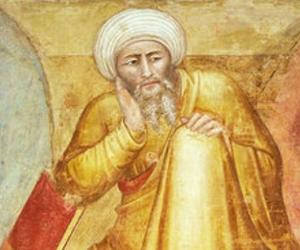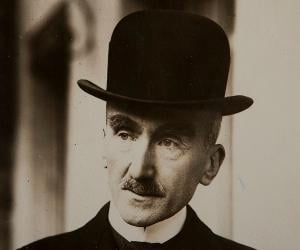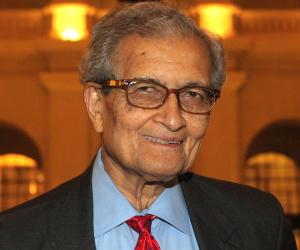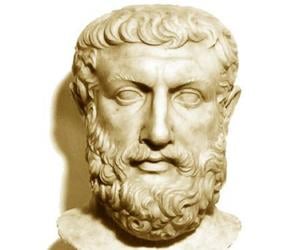German philosopher, cultural critic, composer, and poet Friedrich Nietzsche has had a profound influence on modern intellectual history. He held the Chair of Classical Philology at the University of Basel. His work spanned philosophical polemics, poetry, cultural criticism, and fiction. He suffered from numerous health problems from a young age and died at the age of 55.
Famous Greek philosopher and scientist, Aristotle, made significant contributions to various fields of science and arts of his era–logic, biology, politics, economics, ethics and aesthetics. Along with Socrates and Plato, he laid much of the foundation of Western philosophy. Student of Plato and teacher of Alexander the Great, he founded Lyceum, the school of philosophy, and the Aristotelian tradition.
Plato was one of the most important Ancient Greek philosophers, who contributed greatly to the fields of mathematics, metaphysics, politics, art, and poetry. Along with his famous student Aristotle and equally famous teacher Socrates, Plato is considered one of the founders of spirituality and Western religion. Platonism remains one of his important contributions.
A famous Greek philosopher, Socrates is credited with founding Western philosophy along with other popular philosophers of his time. An enigmatic figure, most of his work is documented by his famous student Plato. Socrates is widely regarded as one of the most influential philosophers of all time as he had a strong influence on the philosophers of the modern era.
Marcus Aurelius played an important role in the Roman Empire. A Stoic philosopher, Marcus was part of the Five Good Emperors and the last emperor of the Pax Romana—a 200-year-long period of relative peace in the Roman Empire. Also a writer, his work Meditations is regarded by many as one of the greatest works of philosophy.
Confucius was a Chinese philosopher whose philosophy came to be known as Confucianism. Confucianism is often credited with shaping Chinese communities and East Asian societies. Confucius is considered one of the most influential individuals in the history of mankind as his teachings have had a great impact on people around the world. His philosophy continues to remain influential.
Immanuel Kant was a German philosopher whose works in fields like aesthetics and metaphysics have made him an important and influential personality in Western philosophy. His views continue to influence contemporary philosophy. Kant has had a major influence on prominent philosophers like Hegel, Schelling, Reinhold, and Fichte. Kant's work on mathematics is cited by Albert Einstein as an early influence.
Albert Camus was a French philosopher and the second-youngest recipient of the Nobel Prize in Literature. His philosophical views contributed to the rise of absurdism, a philosophical concept. Also a prolific writer, Albert Camus had an illustrious literary career; most of his philosophical essays and novels are still influential.
Bertrand Russell was a British polymath and Nobel laureate. His work, which is spread across various fields, has had a considerable influence on philosophy, cognitive science, artificial intelligence, mathematics, linguistics, and logic. Russell is also credited with leading the revolt against idealism in Britain and is regarded as one of the founders of analytic philosophy.
Francis Bacon was a Renaissance philosopher and author who was known as the Father of Empiricism, because of his belief in the scientific method and theory that scientific knowledge can only be created through inductive reasoning and experience. He was later knighted and served as the first Queen's counsel.
Ralph Waldo Emerson was an American philosopher who led the transcendentalist movement that developed in the eastern United States in the 1820s and 1830s. He is credited with popularizing individualism through his numerous lectures and essays. Emerson influenced many thinkers and writers that followed him; he mentored Henry David Thoreau, who went on to become a leading transcendentalist.
Widely considered The Father of Economics, Adam Smith was a Scottish philosopher and economist. A pioneer of political economy, Adam Smith played a major role during the Scottish Enlightenment. His book The Wealth of Nations is regarded as the first modern work of economics and a forerunner of today's academic discipline of economics.
Jean-Jacques Rousseau was a Genevan philosopher, composer, and writer. His political philosophy influenced aspects of the French Revolution. He also helped develop modern economic, political, and educational thought. His writing inspired a transformation in French drama and poetry. His works also influenced such writers around the world as Tolstoy. His works as a composer were acknowledged by composers like Mozart.
Arthur Schopenhauer was a German philosopher. He was among the first Western philosophers to affirm important tenets of Indian philosophy, such as denial of the self and asceticism. Schopenhauer's work has had a tremendous posthumous impact on disciplines like science, literature, and philosophy. His work influenced personalities like Albert Einstein, Ludwig Wittgenstein, Sigmund Freud, George Bernard Shaw, and Leo Tolstoy.
Thomas Hobbes was an English philosopher. Widely regarded as the co-founder of modern political philosophy, Hobbes is best known for his influential book Leviathan. Apart from political philosophy, Thomas Hobbes also contributed immensely to various other fields, such as ethics, theology, geometry, history, and jurisprudence.
Scottish Enlightenment philosopher, historian, and economist, David Hume, is considered one of the most important philosophers to write in English. His book, A Treatise of Human Nature, is counted among the most influential works in the history of philosophy. His works have influenced numerous thinkers, including German philosopher Immanuel Kant and Christian philosopher Joseph Butler.
Diogenes Of Sinope was a pioneer of Cynic philosophy. It is believed he had expressed his wish to be thrown out of the city after his death, so that animals could eat his corpse. He believed humans needed to learn how to live without fuss and with honesty like dogs.
Slavoj Žižek is a Slovenian philosopher whose works in subjects, such as continental philosophy, Marxism, Hegelianism, and psychoanalysis, has gained him international influence. Often dubbed a celebrity philosopher and Elvis of cultural theory, Žižek was named in Foreign Policy's Top 100 Global Thinkers list in 2012. His work has had an impact on widespread public audiences and academic.
French Enlightenment political philosopher, historian, judge, and man of letters Montesquieu remains the main source of the separation of powers system that is followed in many constitutions across the globe. His treatise The Spirit of the Laws on political theory greatly influenced work of many others, including drafting of the U.S. Constitution by the founding fathers of the United States.
Greek philosopher Epicurus is remembered for establishing a school of philosophy known as Epicureanism. He believed that people could achieve ataraxia and aponia, freedom from fear and pain, unless they indulged in amoral behavior. He established a school named The Garden in Athens, where students could discuss philosophical ideas.
Soren Kierkegaard was a Danish philosopher, theologian, social critic, poet, and religious author. Widely regarded as the first existentialist philosopher, Soren Kierkegaard is sometimes referred to as the Father of Existentialism. He is also credited with influencing many theologians, philosophers, and writers like Paul Feyerabend, Ludwig Wittgenstein, and Jorge Luis Borges.
A staunch advocate of progressive education and liberalism, the American philosopher and psychologist was the founder of the University of Chicago Laboratory Schools. John Dewey’s famous writings included The Reflex Arc Concept in Psychology and Human Nature and Conduct. According to him, passion for knowledge and intellectual curiosity were central to a teacher. He called himself a democratic socialist.
William James was an American psychologist and philosopher. Widely regarded as the father of American psychology and one of the most influential American philosophers, James was the first educator in the United States to offer a course in psychology. He is also credited with co-founding a psychological school of thought called functional psychology and establishing a philosophical school called pragmatism.
Austrian-British philosopher Ludwig Wittgenstein is remembered for his works related to logic, the philosophy of mind, the philosophy of mathematics, and the philosophy of language. He taught at the University of Cambridge for many years. He published only one book during his lifetime. Most of his manuscripts were collected later and published posthumously.
Alan Watts was a British writer, philosopher, and speaker. He is credited with popularizing Hinduism, Taoism, and Buddhism in the Western world. A prolific writer, Alan Watts wrote one of Buddhism's first bestselling books, The Way of Zen. He also explored psychedelics and human consciousness in his works, such as The Joyous Cosmology and The New Alchemy.
Jacques Derrida was a French philosopher remembered for developing deconstruction, a form of semiotic analysis. Derrida is one of the most influential figures associated with postmodern philosophy and post-structuralism. He also had a major influence on academic disciplines like philosophy, law, political theory, anthropology, applied linguistics, and historiography. He also influenced music, art criticism, art, and architecture.
Denis Diderot revolutionized the Age of Enlightenment as the co-founder of Encyclopédie, which was banned for questioning religion. He had flirted with the idea of joining the theater and becoming a priest, and even studied law, but later devoted himself to languages, literature, and philosophy.
Walter Benjamin was a German Jewish essayist, philosopher, and cultural critic. An eclectic thinker, Benjamin made significant contributions to literary criticism, aesthetic theory, and historical materialism. Although Benjamin's work did not earn much recognition during his lifetime, it continues to be revered by academics several years after his death.
One of the most prominent intellectuals of the 20th century, Theodor Adorno was a pioneer of the Frankfurt School of Critical Theory and despised the culture industry. Born to a singer mother, the German sociologist grew up amid music and could even play Beethoven on the piano by 12.
French philosopher, Henri Bergson, is remembered for his contribution to the tradition of continental philosophy. His works were considered extremely influential, especially during the first half of the 20th century. He received the Nobel Prize in Literature (1927) and Grand-Croix de la Legion d'honneur (1930). He was a simple man who led a humble life despite his great achievements.
